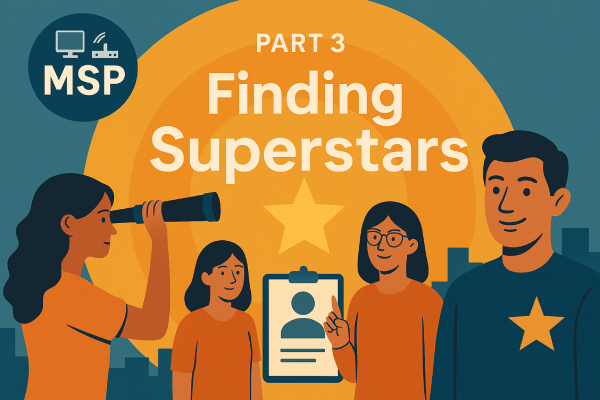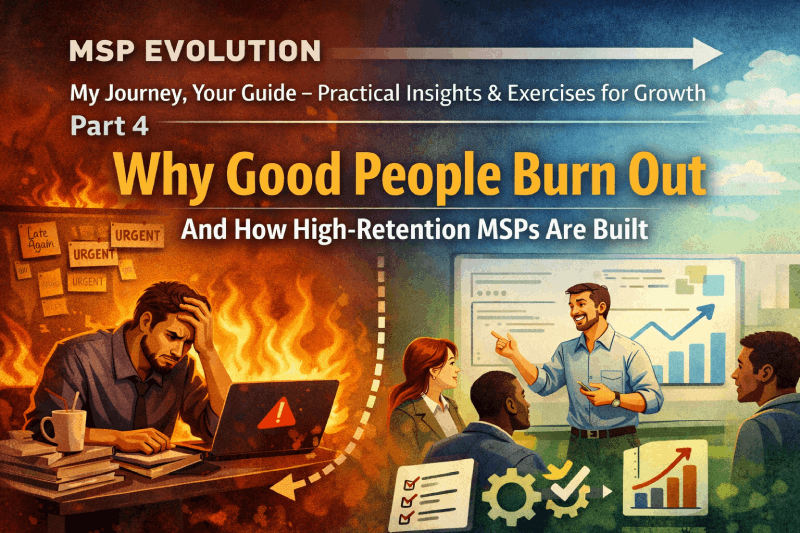In our last post, we talked about how to attract employees who are already superstars. In this post, we’re going to talk about how to find and attract those potential superstar employees from scratch. The people you are looking for here may never have been in a technical role but have the potential to grow into something spectacular. How do you identify people like this?
Getting in front of the right people
This will less apply to companies that are primarily remote and geographically spread, but the general sentiment still works. Kate Schlarf (https://www.linkedin.com/in/kateschlarf/) made an interesting point following my post on attracting superstar employees. “Next it needs a part on meeting candidates where they are. The reality is you can do all those things and be amazing but if they never hear of you then you’ll still miss out in the end”. I couldn’t agree more. You’ll see this theme spread through my posts, but just like your website is a vehicle to attract superstar staff, your wider marketing efforts should be a concerted effort to attract the right potential employees as well as clients.
One of the ways of getting in front of the right people is by targeting students, schools, and colleges on the appropriate courses. We partnered with several colleges and universities in the local area to not just spread awareness of the business and of what MSPs do in general, but also to start the process early of attracting the potential superstar employees. Getting in early at this stage also helps you build up a strong brand presence for your MSP. By getting you and your company involved in:
- Being present and available at career days at the college/university
- Presenting at guest lectures or workshops on interesting, relevant topics
- Offering work experience at your MSP
- Sponsoring events or competitions to increase your visibility with the staff and students
- Engaging with alumni who have been at the college/university; especially powerful if this is one of your existing staff
- Social media and online engagement to engage with relevant student groups or societies
- Building up good relationships with staff who then refer students to you directly after they have finished their education
This may look like a lot of work, and it is to a degree but for the right type of MSP it’s an investment in your MSP’s mid to long-term growth. My old MSP got some exceptional superstars in this way.
Practical Exercise
If it makes sense for your business, talk to the existing staff in your business about the colleges and universities that they went to.
- Gauge what they thought of their place of education and how much that helped them get set up for working at your MSP. If this has a positive response, then…
- Ask if they have any connections still back into their college/university and ask if they are willing to get you connected with them
- Ask if they’d be willing to come to the next career day the college/university has and help represent your MSP. Their personal experience and journey can be a powerful testament to the career opportunities at your MSP
How to identify the potential superstars
You’ve now started what is essentially a marketing exercise. You have a potential funnel for new employees and junior employees, but how do you identify the ones that are worth investing in, and this IS an investment! I think this is probably the most critical thing to get right, bringing junior employees into your business that are going to take up time and existing staff resources is always a calculated risk and done incorrectly can bring far more harm to your business than good. For a period of months, you are not up by one person, you’re essentially down by one person as they will need to be trained.
It took us a long time to get this even close to right at my previous MSP. Many lessons were learned over many years, but we started to see patterns in the people who we’d bought in that had gone on to work really well for us.
CV/Resume
- Candidates who had any form of work experience (while in education) generally had a strong work ethic and good attitude
- Candidates who had volunteered were generally very empathetic (which I think is a critical skill in a customer service role)
- Candidates who had worked in any customer service industry job and presented with a positive attitude were able to provide exceptional support. One of my old MSP’s most exceptional engineers started his career in a high-end restaurant and he provided some of the best, most consistent customer service I have ever seen at any company
- Candidates who had spelling or grammar mistakes in their CV generally had poorer attention to detail
Interviewing
- For technical roles, candidates who were able to demonstrate a genuine interest in technology (we used a question that assessed what they had at home in terms of technology) worked out far more than those who did not have that interest. If you’ve just done a degree in networking and you can’t tell me the IP range on your home network then that’s a red flag!
- Candidates who were inquisitive and showed a genuine love of learning. As people went through interviews with us, I’d ask them a variety of technical questions on the initial call to assess roughly how much they knew, and I’d note the questions they’d get wrong. If they progressed to the next stage of the interview, I’d ask them one of the same questions again. You’ll get one of two responses; blank face or excitement. Those who are excited because they’d gone away and researched the question they got wrong are the kind of people you want in your MSP
- Candidates who were good communicators and were able to break down complex technologies and explain them in plain language always had a huge jump start. One of the lessons I learned over time: It’s far easier to teach an intelligent person technical skills than it is to teach an intelligent person good communication and people skills.
- For the junior roles (where there was no previous experience in a technology company) experience or certification wouldn’t even come into it, with a minor caveat. If you’ve done a networking degree, gone out and got a CCNA and you can’t answer basic networking questions then that’s a red flag.
- Before we hired anyone, the last stage was for them always to sign an NDA and sit with our service desk for an afternoon or morning and then solicit a final opinion from your existing staff. This not only makes sure they are a good fit, but good technical people can quickly identify other potentially good technical people
There are many other things to look out for candidates in interviews that I may touch on in a post down the line, but I wanted to make sure to cover the specific ones that were shown over time to have had the biggest determining factor on someone’s superstar status.
Where else may they be hiding?
This requires some out of the box thinking and some ‘perspective taking’. Some of these concepts are more abstract than just targeting a university or college.
Practical Exercise
- Put yourself into the mindset of a potential superstar employee. The kind of person who doesn’t come into your business fully developed, maybe they don’t even have that many technical skills. Maybe they don’t even know what an MSP is!
- What do you think the hobbies are of this type of person? What do they spend their time doing? (if you need some help here, look inwardly at the hobbies of your existing employees)
- Where are these people spending their time?
These are going to vary depending on where in the world you are, the type of person you are looking for and even local availability of certain things. Here are some thoughts to get you started when I think about this in the context of a potential IT Support Engineer.
Hobbies
- Coding or programming – engaging in personal coding projects or contributing to open source can be both a hobby and a skill enhancer
- Gaming – keeping their reflexes sharp and problem-solving skills on point
- Tinkering with electronics – Raspberry Pi, home networks etc
- Reading technology blogs – keeping an interest and learning
- Playing musical instruments – technically minded people seem to take particular interest here (fun fact, I once took an Irish Tin Whistle into work to play concerning hobbits; no regrets)
- Photography – has lots of technical aspects
- Capture the flags (Cybersecurity challenges/ethical hacking etc)
- Escape rooms/solving puzzles
- Fixing their family’s PCs and technology
How can you use this to your advantage? You get yourself in front of the people where they are! First off, empower your existing employees to be advocates for your company. Draw attention to your staff that their social circles likely have potential superstars in them. Offer them decent referral incentives to bring in those potential superstars! If that’s not an option, or you’re already doing it, start advertising in the spaces these people are in. Got to local clubs, conventions, Facebook groups etc. They will be seen not just by your potential superstars, but also by those people who for your clients as an MSP who are often IT contacts.
As an example of applying this practically, I once used Facebook and a group local to my area to advertise a Junior IT Engineer Role at my old MSP, specifically asking for individuals who are the “IT Superheroes” of a family. The post got really good traction with parents, grandparents, family and friends tagging and passing the post on to the target superstars and we got a number of candidates through this approach.






Start the conversation